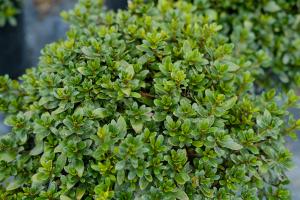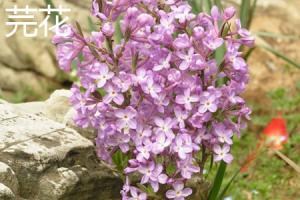Is Epsom Salt Good for Tulsi Plant?
Tulsi, also known as holy basil, is a sacred plant in India that is widely used for medicinal and religious purposes. It is a hardy plant that can thrive in various weather conditions and soils. To ensure healthy growth, proper care and nutrition are crucial, and Epsom salt is touted as an effective natural fertilizer for tulsi plants. But is it actually good for the plant?
What is Epsom Salt?
Epsom salt is a natural mineral compound composed of magnesium, sulfur, and oxygen. It is named after the town of Epsom in Surrey, England, where it was first discovered in the 17th century. Epsom salt is widely used for medicinal, agricultural, and beauty purposes due to its many benefits, including reducing inflammation, improving blood circulation, and promoting plant growth.
Benefits of Epsom Salt for Tulsi Plants
Many gardeners and plant enthusiasts swear by Epsom salt as a natural fertilizer for tulsi plants, claiming that it can increase the plant's growth rate, improve flower production, and enhance the plant's overall health. Some of the benefits of using Epsom salt for tulsi plants include:
Supplying essential nutrients: Epsom salt is rich in magnesium and sulfur, both of which are essential nutrients for plant growth. Magnesium is necessary for chlorophyll production, which is vital for photosynthesis, while sulfur is needed for the formation of amino acids, enzymes, and proteins.
Boosting plant immunity: Epsom salt can strengthen the plant's immune system, making it more resistant to pests and diseases.
Improving soil quality: Epsom salt can help improve the soil's structure and texture, making it easier for the roots to absorb water and nutrients.
Reducing stress: Epsom salt can help reduce stress in the plant by improving nutrient uptake and reducing transplant shock.
How to Use Epsom Salt for Tulsi Plants
Before using Epsom salt for your tulsi plants, it is crucial to understand the proper way to apply it. Here's a step-by-step guide:
Dilute the Epsom salt: Mix 1 tablespoon of Epsom salt with 1 gallon of water in a watering can or spray bottle. Stir the mixture until the salt is completely dissolved.
Apply the solution: Water your tulsi plant with the Epsom salt solution, making sure to saturate the soil. Alternatively, you can spray the solution directly onto the plant's leaves and stem.
Repeat once a month: Repeat the process once a month during the growing season (spring and summer). Avoid using Epsom salt during the dormant season (fall and winter) as it can promote soft growth that is more susceptible to frost damage.
Conclusion
In conclusion, Epsom salt can be beneficial for tulsi plants when used correctly. It can supply essential nutrients, boost plant immunity, improve soil quality, and reduce stress. However, it is important to use it in moderation as excessive use can lead to magnesium and sulfur toxicity, which can harm the plant. As with any natural fertilizer, it is always best to consult a gardening expert or conduct research before using it on your plants.

 how many times do yo...
how many times do yo... how many planted tre...
how many planted tre... how many pine trees ...
how many pine trees ... how many pecan trees...
how many pecan trees... how many plants comp...
how many plants comp... how many plants can ...
how many plants can ... how many plants and ...
how many plants and ... how many pepper plan...
how many pepper plan...
































